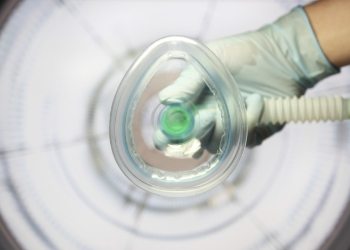Sedation Dentistry in Gorham
You Deserve Pain Free Dental Care

It's estimated that nearly 75% of people feel anxious about dental visits. This is understandable, but avoiding dental care because of fear can lead to bigger problems like dental pain and expensive treatments in the long run.
At Morgan Dental Care, we believe in turning your dental worries into calm confidence. You deserve a stress-free experience, and it's achievable with our sedation dentistry options.
We offer nitrous oxide and oral conscious sedation to cater to your specific needs. This means you can conquer your dental fears and get the care you deserve.
Ready to take the first step towards a worry-free dental visit? Call us to schedule a consultation.
Why Choose Morgan Dental Care for Sedation Dentistry?
- Experienced & Compassionate Dental Team
- Flexible Financing Options Available
- State-of-the-Art Digital Technology
Nitrous Oxide Dental Sedation

Nitrous oxide is the most common sedation dentistry method. It is regularly called “laughing gas.” You will breathe nitrous oxide in combination with oxygen through a special mask. Nitrous oxide is a great anxiety reliever and will make you feel light and relaxed during any procedure. Your level of sedation can be adjusted during your appointment, and the effect of the gas wears off quickly once the mask is removed, so there is no “hangover” effect. You can even drive yourself home after your treatment! To learn more about this option, keep reading or give us a call today.
Who Is a Good Candidate for Nitrous Oxide Dental Sedation?
Sedation dentistry is an excellent tool for anyone suffering from dental fear or anxiety. Our team will recommend it if any of the following points apply to you:
- You are uncomfortable around needles
- You have difficulty sitting still in the treatment chair
- You have a strong gag reflex
- You are not easily numbed with local anesthesia
Nitrous oxide sedation is safe for most patients, but certain people should avoid it. Pregnant women and those with sinus congestion or certain respiratory conditions are not viable candidates. Should you fall under one of those groups, you can explore other sedation methods.
How Does Nitrous Oxide Dental Sedation Work?
Known as “laughing gas,” nitrous oxide sedation is a mild sedative that will quickly begin to make you feel more at ease. You’ll be given a nose mask that is attached to a machine that administers the sedative. Then, we’ll use controls on the machine to release a mixture of oxygen and nitrous oxide into the mask.
Shortly after you begin to breathe in, you will start feeling relaxed and sleepy. We’ll adjust your level of sedation as needed throughout your procedure. At the end of your appointment, your mask will be removed, and within minutes, the effects will begin to wear off. Since you’ll feel back to normal in no time, you can drive yourself to and from your appointment!
Aftercare for Nitrous Oxide Dental Sedation
While the effects of nitrous oxide fade quickly, our team at Morgan Dental Care will ask that you stay in our office for a few minutes so we can monitor you and ensure you’re good to drive yourself home. Most patients can return to their usual activities right away. However, you might need to take it easy for a day or two depending on the type of dental procedure you underwent. If you think you’re experiencing any complications from the sedation or treatment, please contact us as soon as possible. We’ll address the issue as fast as we can!
Oral Conscious Sedation

Do you tend to feel anxious before undergoing dental treatment or when simply thinking about visiting your dentist? You aren’t the only one. Since many people experience some level of anxiety towards dental care, our team offers oral conscious sedation for a much stronger relaxation effect. This is especially helpful for those who also find it difficult to remain still in the dentist’s chair or require extensive procedures. By taking a sedative before your appointment, you’ll be able to receive the essential care you need in a completely stress-free state.
What Is Oral Conscious Sedation?
Unlike other forms of sedation dentistry, you won’t need to wear a nasal mask or worry about needles with oral conscious sedation. This method of relaxation requires that you take a prescribed medication at a specific time before beginning your procedure. This small pill should effectively put you in a state of total calmness or even euphoria. You’ll be able to undergo your treatment while remaining completely comfortable. The effects of this sedation take longer to subside, so you will need to arrange for a trusted friend or family member to drive you home.
How Does Oral Conscious Sedation Work?
Oral conscious sedation involves taking an oral sedative about an hour before your appointment. The sedative will make you feel drowsy and calm in time for your treatment. During the procedure, you will be completely relaxed but always conscious and able to communicate with those around you. Our team will also monitor your vitals throughout your visit to ensure you’re comfortable and safe.
Once your procedure is completed and the effects of the sedation have worn off, you will have little or no memory of the procedure. You’ll also need to wait several hours before starting your daily activities, such as school or work. For this reason, you may want to call out for the day so that you can properly recover from your appointment.
Are You a Good Candidate for Oral Conscious Sedation?
While there are various kinds of sedation dentistry available out there, it doesn’t mean you’ll be eligible for every type. You may benefit most from oral conscious sedation if you:
- Struggle with dental anxiety, fear, or nervousness
- Have a sensitive or strong gag reflex
- Typically skip checkups and cleanings due to nerves
- Have trouble sitting still or keeping your mouth open
- Require an extensive procedure or multiple treatments
- Aren’t able to be pain-free with local anesthesia
Am I a Good Candidate for Sedation Dentistry?

During your consultation with us, we will discuss your anxiety levels and medical history to determine which sedation method, if any, is ideal to safely meet your needs. Dental sedation is often an excellent option for patients who struggle with the following:
- Dental Anxiety: If you have dental anxiety, sedation dentistry can help you feel more relaxed throughout your treatment.
- Increased Sensitivity: For patients who have teeth or gums that are particularly sensitive, sedation can help to lessen this.
- Overactive Gag Reflex: If smells, tastes, or the presence of dental tools in your mouth make you gag easily, sedation can reduce this. This allows you to feel more comfortable and helps your dentist work faster and more efficiently.
- Long Procedure: Even if you feel particularly relaxed at the dentist, if you have a long, thorough procedure coming up, sedation can help to make the experience more tolerable.
Sedation Dentistry FAQs
Are you nervous about your upcoming dentist appointment? Don’t worry – you’re not alone. Dental anxiety is a serious issue that affects more people than you think. Luckily, sedation dentistry in Gorham can help you feel relaxed enough to get the care you need. Of course, it’s completely normal to have a few concerns about it before committing to anything. At Morgan Dental Care, we’ve decided to answer some frequently asked questions below for your convenience. Should you not see what you’re looking for, don’t hesitate to reach out for personal assistance!
Is Sedation Dentistry Safe?
Absolutely! It’s considered completely safe as long as it’s performed by a trained and licensed medical professional. However, it’s important to remember that not every sedation method is right for everyone. During your consultation, our team will review your medical history and inquire about any current medications to determine if there will be any negative reactions. Once you’re under dental sedation, we’ll closely monitor your vitals (i.e., blood pressure, oxygen levels, heart rate, etc.) to ensure you’re completely fine.
Will I Remember Anything with Dental Sedation?
While you’re technically awake with most forms of dental sedation, there’s a very high chance you won’t remember much of your procedure. For most patients with severe anxiety, this is a great benefit, as it makes getting dental care in the future much easier. They don’t have to worry about remembering negative dental experiences that occurred in the past.
Is Sedation Dentistry Covered by Insurance?
Most dental insurance plans do not offer coverage for sedation dentistry, mainly because it’s considered a “luxury” treatment. However, there are some exceptions! Patients with a disability (i.e., cerebral palsy, Parkinson’s, autism) may be eligible for coverage since their condition makes it virtually impossible for them to receive dental care without sedation. In some cases, sedation dentistry may be covered if the dental procedure needed is exceptionally complex, such as multiple tooth extractions. Of course, every policy is unique, which is why you should confirm the details of your plan with your insurance provider before committing to anything.
How Long Does Dental Sedation Last?
It depends on the type of sedation you’re receiving! If you opt for nitrous oxide, the effect should wear off within a few minutes once you stop inhaling the gas. You should be good at driving yourself home or to work soon afterward with no lingering drowsiness. Meanwhile, the effects of oral conscious sedation may remain active for the rest of the day. For that reason, you should avoid driving or operating heavy machinery for 24 hours after your procedure.
